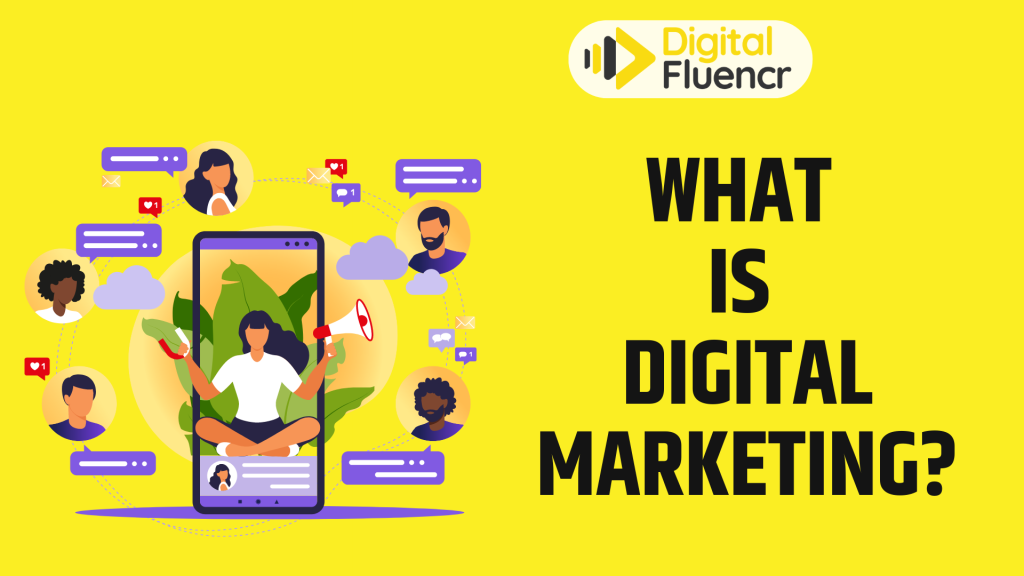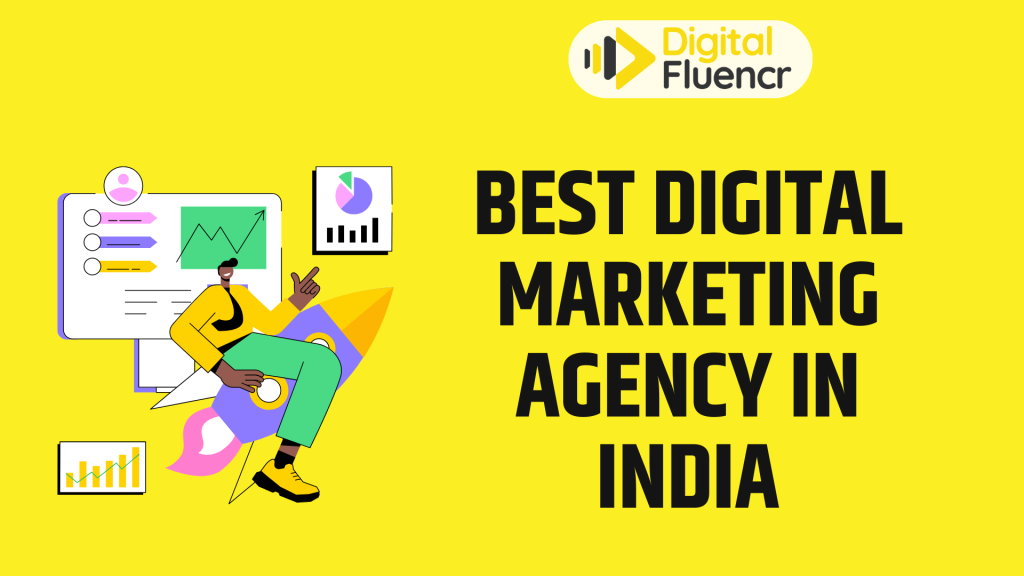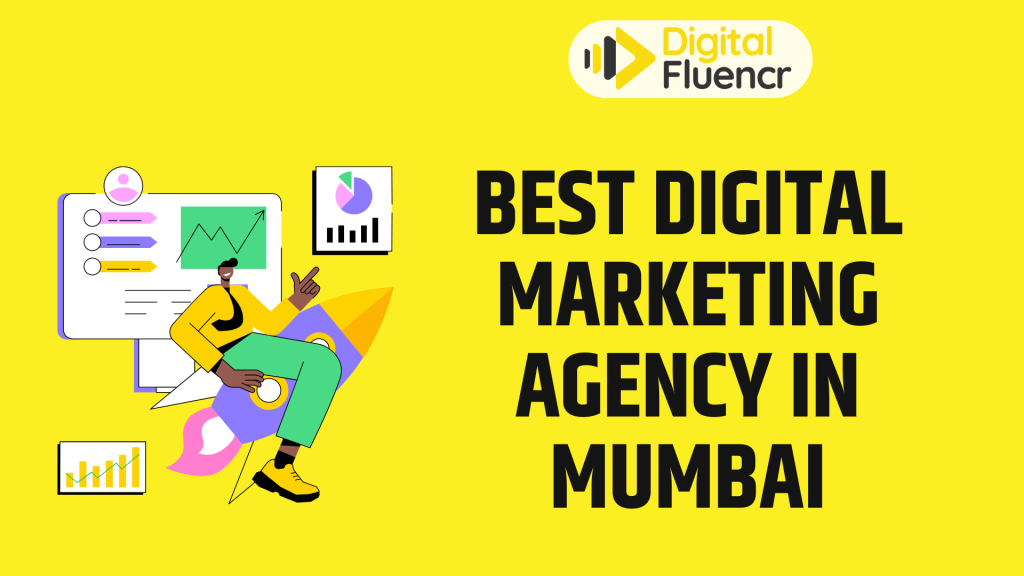Over the past 20 years, marketing methods and internet-based platforms have changed in ways that have made digital marketing the most important type of marketing.
In fact, statistics show that digital marketing and advertising is expected to grow around $786.2 billion by 2026.
In this article, I am going to talk about what online marketing is and how it can benefit businesses.
Throughout this article, I will cover the key concepts, strategies, and tools involved in online marketing.
By understanding the fundamentals of digital marketing, you will gain insights into the power of this dynamic field and how it can be used to drive growth in a competitive business landscape.
Let’s quickly get into it.
What is Digital Marketing
We are already aware that Digital marketing is the use of online channels and technologies to promote products and services, to reach and engage with a target audience.
It is packed with productive online marketing tactics and strategies. Will help you support and promote your business. It improvises website traffic, attracting brand visibility, tactical lead generation, and ultimately, achieving your business goals.
Search engines, social media, email, mobile apps, and websites are used by various businesses to connect with potential customers.
It aims to deliver personalized messages and content to the right audience, at the right time, to increase brand awareness, customer engagement, and conversions.
Types of Digital Marketing
There are various types of strategies and approaches. within online marketing Businesses employ them to effectively reach their target audience and achieve their marketing goals.
1. Search Engine Optimization
It is the practice of improving a website’s visibility and ranking / rating on search engine results pages organically.
If you have SEO techniques like On page optimization, link building, competitive keyword research in place, its definite for your business to gain more customers and increase organic search traffic.
2. Content Marketing
Through Content marketing, we can share/create content including articles, blog posts, infographics and videos, that can attract and engage a target audience.
By providing relevant and informative content, businesses will be able to self establish as experts in the industry by winning trust over their audience.
3. Social Media Marketing
Social media marketing involves leveraging social media platforms like Facebook, Instagram, Twitter, and LinkedIn to connect with potential customers, build brand awareness, and drive website traffic.
It includes activities such as posting engaging content, running targeted advertisements, and interacting with followers.
4. Affiliate Marketing
Affiliate marketing is a performance-based marketing strategy where businesses partner with affiliates who promote their products or services in exchange for a commission on each sale.
It is a cost-effective way for businesses to expand their reach and generate sales through the efforts of affiliate marketers.
5. Native Advertising
Native advertising refers to paid advertisements that blend seamlessly with the platform’s content, making them appear more natural and less intrusive.
This form of advertising allows businesses to reach their target audience in a non-disruptive way, enhancing the user experience while promoting their products or services.
6. Influencer Marketing
Influencer marketing is the collaboration of a business/agency with individuals who are influential on social media and are available for promoting any products and services.
Influencers have a dedicated following and can effectively sway their audience’s opinions and behaviors, making it an effective strategy for businesses to reach a specific demographic.
7. Marketing Automation
Marketing automation refers to using software and technologies to automate repetitive marketing tasks such as email campaigns, social media posting, and customer segmentation.
By streamlining these processes, businesses can save time, improve efficiency, and deliver personalized experiences to their audience.
8. Email Marketing
Email marketing is the technique of sending targeted emails to a list of users in order to cultivate connections, advertise products or services, and generate conversions. It is a cost-effective and direct way for businesses to communicate with their audience and build customer loyalty.
9. Mobile Marketing
Mobile marketing involves reaching and engaging people using mobile devices such as smartphones and tablets.
It includes strategies like mobile advertising, mobile-responsive website design, and mobile app marketing, taking advantage of the growing number of mobile users worldwide.
Evolution of Digital Marketing
Digital marketing has advanced significantly since its beginnings. Let’s examine its development over the years:
1. The 90s
In the 1990s, online marketing primarily revolved around websites, email marketing, and basic online advertising. Websites served as digital brochures for businesses, while email marketing allowed direct communication with customers. Online advertising was limited to banner ads and pop-ups.
2. The Millennial Generation
With the rise of social media platforms like Facebook, YouTube, and Twitter, digital marketing started to become more interactive and engaging. Marketers began leveraging these platforms to connect with their audience on a more personal level, creating viral content and encouraging user-generated content.
3. The Mobile Era
The advent of smartphones and mobile apps opened up new opportunities for digital marketing. Marketers started focusing on mobile-responsive websites and app-based marketing to target users on the go. Location-based marketing and mobile advertising became popular strategies.
4. The Present
Today, digital marketing has become an integral part of any comprehensive marketing strategy.
It has various channels and techniques, allowing businesses to reach their audience through personalized and targeted campaigns.
Data analytics and AI-driven technologies have further enhanced the effectiveness and efficiency of online marketing efforts.
Digital Marketing Roles and Responsibilities
Digital marketing involves a variety of roles and responsibilities within an organization. Let’s take a look at some of the key roles and their responsibilities
Role: Social media marketing
Responsibility:
- Creating and executing social media strategies
- Managing social media accounts and profiles
- Interacting with the audience and reacting to their remarks and messages
- Analyzing social media metrics and optimizing campaigns
Role: Marketing Management
Responsibility:
- Developing overall marketing strategies and plans
- Identifying target markets and customer segments
- Managing marketing budgets and allocating resources
- Analyzing market trends and competitor activities
Role: SEO specialist
Responsibility:
- Conducting keyword research and optimizing website content
- Implementing on-page and off-page SEO techniques
- Monitoring website rankings and organic search traffic
- Analyzing SEO metrics and making recommendations for improvement
Role : Content Creator
Responsibility:
- Creating compelling and engaging content for various digital channels
- Doing research and keeping up with market developments
- Developing content plans with the team as a whole
- Checking the content for accuracy and readability when editing
Role: Content strategist
Responsibility:
- Developing content strategies aligned with business objectives
- Planning and managing content calendars
- Conduct content audits and analyzing performance metrics
- Identifying target audience and creating buyer personas
- Collaborating with content creators and other teams to ensure consistent messaging and brand voice
Role: Brand Manager
Responsibility:
- Developing and implementing brand guidelines
- Monitoring and managing brand reputation
- Creating and maintaining brand identity across digital channels
- Conducting market research to understand consumer perception
- Collaborating with design and marketing teams to create cohesive brand experiences
Role: Project Manager
Responsibility:
- Planning, executing, and monitoring online marketing projects
- Setting project goals, timelines, and budgets
- Collaborating with diverse groups to guarantee project success
- Managing resources and resolving project-related issues
- Analyzing project performance and making adjustments as needed
Role: Graphic Designer
Responsibility:
- Creating visually appealing and engaging graphics for digital marketing campaigns
- Designing website layouts, social media visuals, infographics, and other digital assets
- Incorporating brand elements and maintaining visual consistency
- Collaborating with content creators and marketing teams to ensure design alignment
- Being updated on market changes and best practices
Digital Marketing Tools
To effectively implement digital marketing strategies, professionals rely on various tools and platforms.
1. Semrush
Semrush is a comprehensive SEO tool that offers a wide range of features to enhance your website’s search engine optimization efforts.
It provides in-depth keyword research, helping you identify relevant keywords with high search volume and low competition.
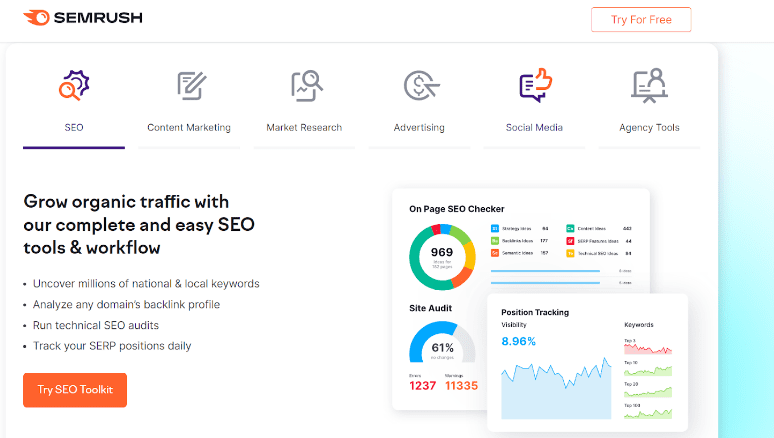
Additionally, Semrush offers competitor analysis, allowing you to analyze your competitors’ strategies and identify areas for improvement.
With backlink analysis, you can assess the quality and quantity of backlinks to your website. Semrush also includes a website auditing feature that helps identify technical SEO issues and provides recommendations for optimization.
2. HubSpot
HubSpot is a robust inbound marketing and sales platform that provides a suite of tools to streamline your marketing efforts.
It offers content management capabilities, allowing you to create, publish, and optimize content across various channels. HubSpot’s lead generation tools help capture and manage leads effectively.
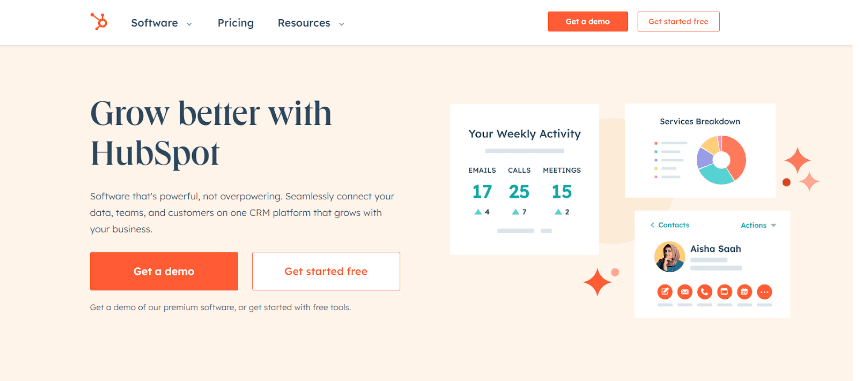
The platform also includes email marketing features for creating and automating email campaigns. HubSpot’s customer relationship management (CRM) system enables you to track customer interactions, manage pipelines, and analyze sales performance.
3. Google Ads
Google Ads is Google’s advertising platform that allows businesses to create and manage online ads.
It offers a variety of ad formats and targeting options to reach specific audiences. With Google Ads, you can set budgets, bid on keywords, and track the performance of your ads.

It provides insights into impressions, clicks, conversions, and other key metrics to optimize your advertising campaigns effectively.
4. Canva
Canva is a user-friendly graphic design tool that empowers marketers to create visually appealing graphics without extensive design skills.
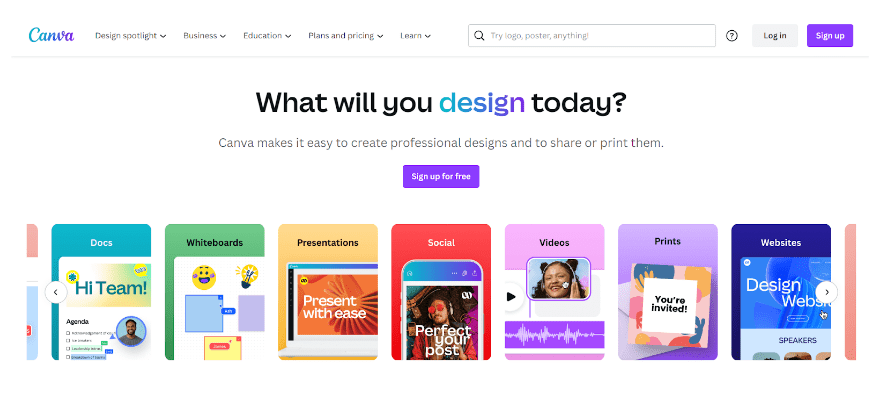
It offers a wide range of templates and design elements for social media posts, infographics, presentations, and more. Canva allows you to customize designs, add text, images, and branding elements, enabling you to create professional-looking visuals quickly and easily.
5. Hootsuite
Hootsuite is a social media management platform that simplifies social media marketing efforts.
It allows you to schedule and publish content across multiple social media platforms from a single dashboard.
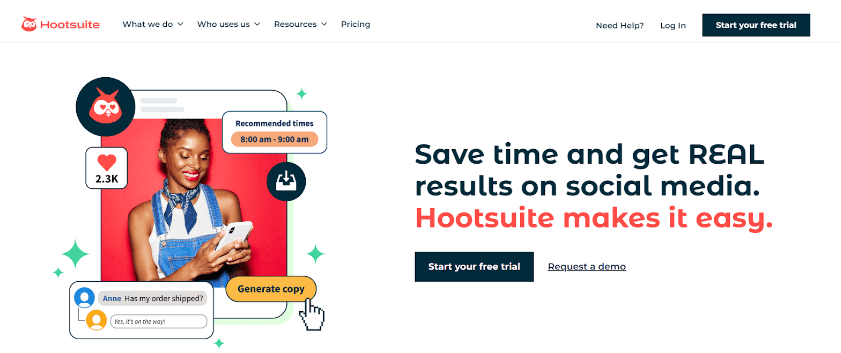
Hootsuite also provides tools for monitoring social media conversations, responding to comments and mentions, and measuring social media performance through analytics. This platform helps streamline your social media strategy and improves overall efficiency.
6. Mailchimp
It is a popular email marketing platform that enables businesses to create, send, and track email campaigns.
Mailchimp allows you to manage subscriber lists, segment your audience, and automate email workflows based on triggers and actions.
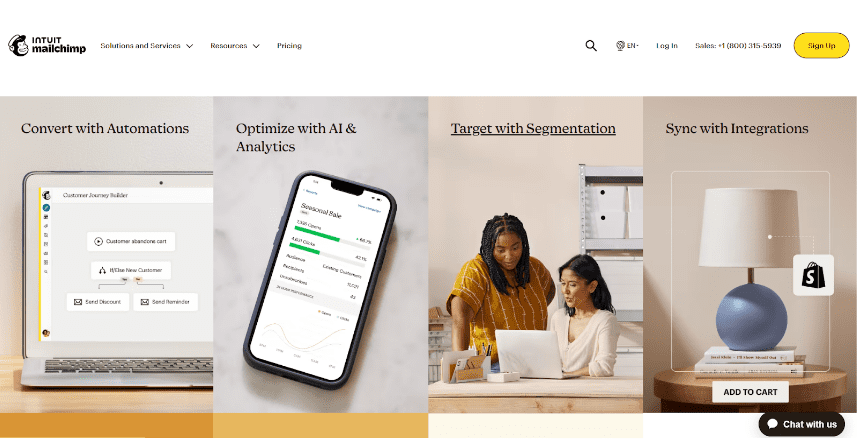
With its tracking and reporting features, you can monitor open rates, click-through rates, and other email campaign metrics to optimize your email marketing efforts.
7. Google Search Console
Google Search Console is a valuable tool provided freely by Google. It has been a very helpful tool for webmasters in monitoring and optimizing their website’s online presence in Google search results.
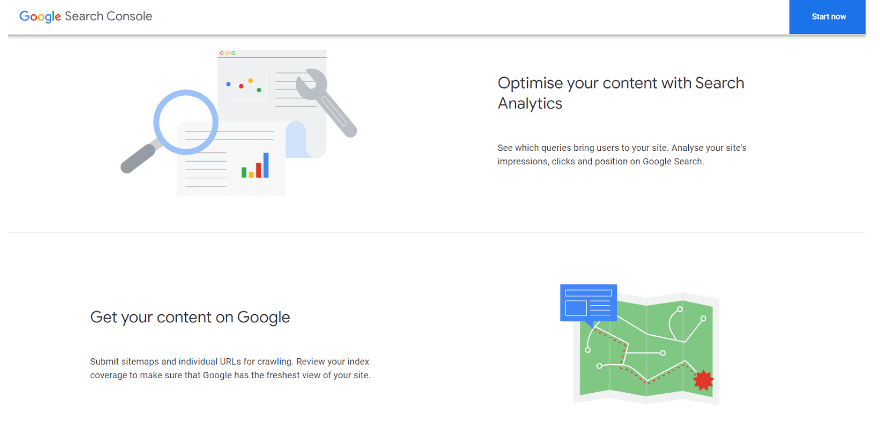
It exhibits insights that are valuable on how Google indexes and crawls your website. Search Console alerts you about indexing issues, crawl errors, and security concerns. It also offers data on search queries, clicks, and impressions, helping you understand your website’s performance in Google search.
8. Google Analytics
Google Analytics is a powerful web analytics tool that provides comprehensive insights about how your website has been performing so far.
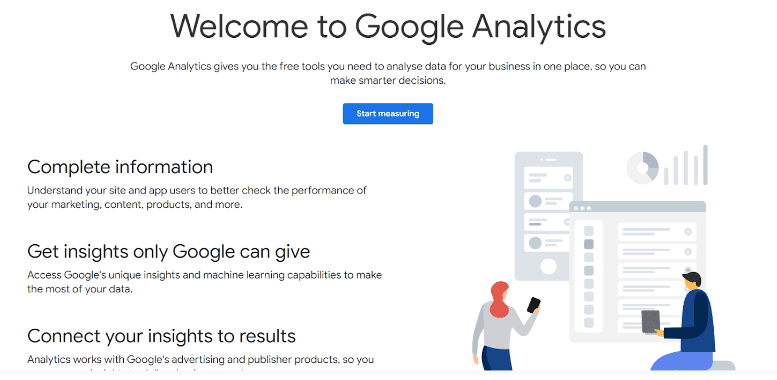
It monitors user behavior, conversion rates, website traffic, and other crucial statistics. With Google Analytics, you can gain valuable insights into your audience, identify top-performing pages, analyze referral sources, and measure the effectiveness of marketing campaigns.
These insights enable data-driven decision-making and optimization of your website and marketing strategies.
Digital Marketing Stats
Digital marketing is a rapidly growing field, and the statistics show it. In 2023, the global digital marketing industry is expected to reach $492.4 billion.
This growth is being driven by the increasing use of smartphones, other mobile devices, and also the growing popularity of social media. Let’s have a look at some facts and figures related to online marketing.
- The demand for global digital Marketing advertising had seen a growth of $350 billion in 2020. The growth rate is expected to shoot to $786.2 billion by 2026, at a 9% annual growth rate.
- Digital Marketing accounts for 48% of all marketing spending.
- Search engine marketing (SEM) is the most popular digital marketing channel, accounting for 40.9% of the market.
- Social media marketing is the second most popular digital marketing channel, accounting for 26.2% of the market.
- Email marketing is the third most popular digital marketing channel, accounting for 14.9% of the market.
- The average click-through rate (CTR) for search engine ads is 2.4%.
- The average CTR for social media ads is 0.9%.
- The average open rate for email marketing campaigns is 22.6%.
- The average click-through rate for email marketing campaigns is 2.1%.
- More than 63% of budgets have been increased by businesses in digital marketing in the preceding year.
- 14% growth rate was noted on the online marketing budget. Huge investments were seen spent across businesses during the 2020 and 2021 period.
Advantages & Disadvantages of Digital Marketing
Digital marketing offers several advantages for businesses, but it also comes with some drawbacks. Let’s explore some of the advantages and disadvantages of digital marketing.
Advantages of Digital Marketing
Let’s look at the Advantages first.
- Digital marketing allows businesses to reach a global audience and target specific demographics, expanding their customer base.
- Compared to traditional marketing methods, digital marketing is often more affordable, especially for small businesses with limited budgets.
- Digital marketing provides valuable data and analytics to measure the effectiveness of campaigns, allowing businesses to make data-driven decisions.
- With digital marketing, businesses can target specific audiences based on demographics, interests, and behaviors, increasing the likelihood of reaching potential customers.
- Through social media, email marketing, and interactive content, businesses can engage with their audience in real-time, building stronger relationships and brand loyalty.
Disadvantages of Digital Marketing
Here are the disadvantages of Online Marketing
- As more businesses adopt digital marketing strategies, competition for online visibility and customer attention intensifies
- Implementing and managing digital marketing tools and platforms can be complex and requires technical expertise.
- Digital marketing relies on collecting and analyzing customer data, raising privacy concerns and the need for transparent data handling practices.
- Digital marketing tactics and algorithms evolve rapidly, requiring businesses to stay updated and adapt their strategies accordingly.
- With the abundance of online content and advertisements, businesses need to find unique ways to capture and maintain audience attention amidst the noise.
Top Digital Marketers In India
In India, several digital marketers have made significant contributions to the field, helping businesses grow and thrive in the digital landscape.
Each of these individuals have made a remarkable impact in the industry through their expertise, knowledge, and successful strategies.
Let’s have a look at the top digital marketers in India.
1. Sorav Jain
Sorav Jain is a well-known online marketer, entrepreneur, and author based in Chennai. He is the founder of a leading digital marketing agency, echoVME.

Sorav is known for his expertise in social media marketing, content marketing, and personal branding. He has trained over 8,000 professionals through his workshops and has been recognized with numerous awards for his contributions to the industry.
2. Prateek Shah
Prateek Shah is a renowned digital marketer and the founder of Digital Defynd, a popular digital marketing training platform.

With his in-depth knowledge and experience in search engine optimization (SEO), search engine marketing (SEM), and web analytics, Prateek has helped businesses achieve higher online visibility and drive organic traffic.
He is also a sought-after speaker at digital marketing conferences and has been featured in various industry publications.
3. Deepak Kanakaraju
Deepak Kanakaraju, widely known as Digital Deepak, is a prominent online marketing consultant and blogger. He has worked with leading brands and helped them devise effective digital marketing strategies.

Deepak specializes in content marketing, email marketing, and affiliate marketing. His blog and online courses have inspired and educated thousands of aspiring digital marketers across India.
4. Pradeep Chopra
Pradeep Chopra is the co-founder of Digital Vidya, which is a one of India’s leading digital marketing training companies. With his strong expertise in online marketing, Pradeep has trained over 35,000 professionals and collaborated with renowned organizations.

He is a respected speaker and has been invited to share his knowledge at prestigious industry events. Pradeep’s focus areas include social media marketing, search engine marketing, and analytics.
Related Reads
Conclusion : What is Digital Marketing?
Its evident that digital marketing has and will be an important, must have tool for businesses. For better online presence, reaching your target audience, and drive business growth, it works far better than traditional marketing.
The various types of digital marketing, evolving trends, and roles within the field provide businesses with a wide range of strategies. It helps them to effectively engage with customers and achieve their marketing goals.
By using the right tools, staying updated with industry statistics, and understanding the advantages and disadvantages, you can develop successful online marketing campaigns and stay ahead in the competitive digital landscape.
If you are in need of educating yourself from scratch, you can also check out the top digital marketers I have listed whose courses have helped out thousands of youth.
I hope this article helped you with the complete guide on digital marketing and its various components. What are your thoughts on this? Comment below and let us know
FAQs: What is Digital Marketing?
Digital marketing utilizes online platforms and tools, such as search engines, social media, email, and websites, to reach and engage with audiences, while traditional marketing relies on offline channels like print ads, TV, and radio.
Digital marketing offers advantages such as global reach, cost-effectiveness, targeted audience segmentation, measurable results, and flexibility in customization.
Common digital marketing channels include search engine optimization (SEO), social media marketing, email marketing, content marketing, paid online advertising (PPC), and mobile marketing.
Yes, digital marketing can be highly beneficial for small businesses as it offers cost-effective advertising options, allows targeting specific audiences, and provides measurable results, leveling the playing field with larger competitors.
